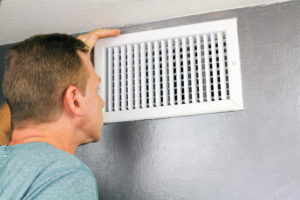Early Spring Allergies? Changing Your Air Filter is Only Part of the Story
Mild Winter May Mean Trouble for Early Spring Allergies
Contents
 While many of us in New Jersey may be welcoming the warmer winter days, others are starting to feel the effects of early spring allergies. Unfortunately, those who suffer with allergies aren’t getting much of a break this year. Typically, symptoms start in the spring with the blooming trees, they roll into the summer with the grass and finally hit hard in the fall with the weeds. Their only relief really happens in the winter; but with the early warm weather, trees are expected to pollinate sooner, which means allergy season is well on its way.
While many of us in New Jersey may be welcoming the warmer winter days, others are starting to feel the effects of early spring allergies. Unfortunately, those who suffer with allergies aren’t getting much of a break this year. Typically, symptoms start in the spring with the blooming trees, they roll into the summer with the grass and finally hit hard in the fall with the weeds. Their only relief really happens in the winter; but with the early warm weather, trees are expected to pollinate sooner, which means allergy season is well on its way.
Four weeks earlier than usual.
Sneezing Your Way Into Spring?
Some experts predict that we’re going to see a 20 percent to 30 percent tree pollen increase this year, and an almost doubling of grass pollen. Always check with your doctor for treatment of allergies, but the best way to guard against symptoms is to prepare as much as possible before the allergy season peaks in April. Here are a few tips:
- Check pollen forecasts on sites like weather.com and accuweather.com and set up alerts for high-pollen days.
- Stay indoors during peak times- allergens tend to peak between 10 a.m. and 4 p.m.
- Close doors and windows in the house to prevent pollen from coming inside.
- When mowing the lawn or gardening, wear a filter mask.
- Wash sheets and pillowcases often to clear away any allergens from clothing and hair.
- Change clothes after being outside for an extended period of time.
- Clean or replace your HVAC air filter regularly.
- Schedule annual HVAC maintenance.
Choosing the Right Air Filter for Spring Allergies
When the pollen count is out of control, all you want to do is hide inside. Unfortunately, that may not help. To get the best results from your air filter you need to look at the MERV ratings and clean (or replace) them regularly.
HEPA air filters are rated on how well they bock particles of different sizes using the MERV system (Minimum Efficiency Rating Value). The ratings range from MERV 1 to MERV 12, with the larger number indicating filters that can best remove the smallest particles, including pollen.
For these filters to perform, they need to be changed more frequently than you may think. Especially during high pollen season, change them each month or at least every other month.
But that’s only part of the story…
HVAC Maintenance to Help Alleviate Spring Allergies
Although using the right air filter and cleaning it often can help to reduce the allergens in the air, don’t forget about the rest of your HVAC system. More than likely, it has a lot of buildup on the blower fans and in your ductwork. An annual tune up not only provides cleaner air, but also better HVAC performance, more consistent comfort levels and a longer equipment lifespan.
Did you realize that the air you breathe cycles through your HVAC system approximately 5 to 7 times each day? Ensure you’re using the right air filter and invest in regular HVAC maintenance to avoid breathing in years’ worth of dust, pollen, and possibly mold spores.
At Point Bay Fuel, we provide HVAC maintenance for all your heating and cooling comfort needs. Contact our NATE certified technicians at (732) 349-5059 to learn more today.
Find more up-to-date pollen information online at at NYNJPollen.com and on the National Allergy Bureau (NAB) website at aaaai.org/nab.
